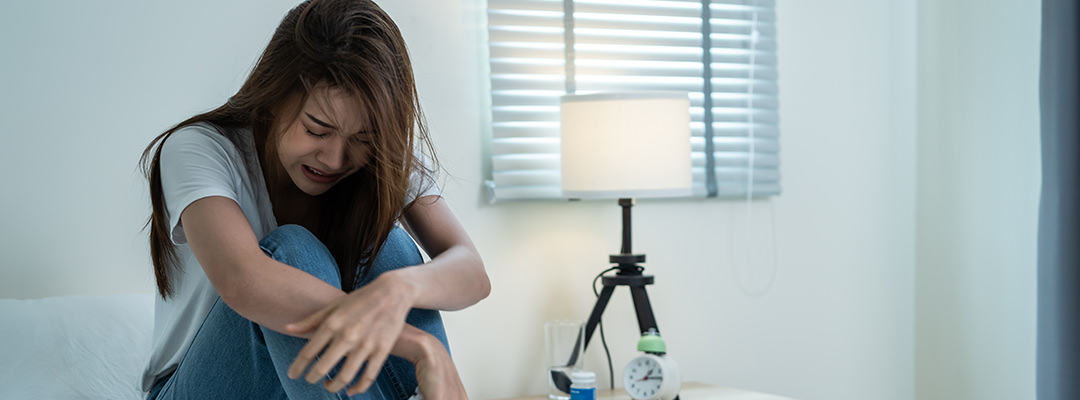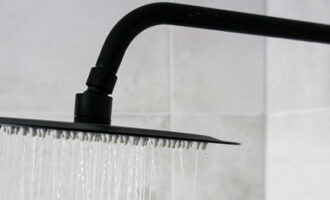If you’ve ever had to live with depression or support someone who has, you’ll know that depression is much bigger than just a dark mood. It affects every aspect of your life, and your sleep health is no exception. Things get even more complicated when you realize that while depression causes insomnia and poor sleep habits, it can go the other way, too — sleep deprivation can cause symptoms of depression.
So how can you manage your body and your mind to make sure you get the best sleep possible? And what can you do to improve your sleep if your mental health is already suffering? Let’s look at the unique relationship between depression and sleep health.
What is depression?
Depression is a psychological mood disorder represented by a constant, continuous state of sadness or despair. Any persistent feeling of bleakness or hopelessness that lasts more than two weeks is classified as depression, but for many people, these feelings can last a lifetime. In addition to sadness, symptoms of depression can include:
- Feelings of guilt or worthlessness
- A loss of interest or pleasure in favorite activities
- A decrease in energy
- Difficulty concentrating
- Fluctuations in appetite
- Thoughts of self-harm
Depression is a debilitating illness that interferes with your work, school, and relationships, and has a serious impact on your physical health. It can be caused by external factors such as stress or trauma, internal factors such as genetics and your brain’s individual makeup, or a combination of the two. While statistics show that depression is more common in women than in men, it can affect people of all genders, ages, and cultures.
How does depression affect our bodies?
Even though depression is a sickness of the mind, it can have a real effect on our physical well-being. Depression can cause immediate problems in our bodies, such as headaches and muscle pain, as well as more long-term concerns. It also greatly increases the risk of succumbing to diseases and other health problems in the future.
Here are some of the physical problems our bodies can experience because of depression:
- Chronic insomnia
- Increased risk of heart attack
- Constricted blood vessels, leading to a higher risk of heart disease
- Increased sensitivity to physical pain
- A weakened immune system
- Decreased libido and physical pleasure
- Loss of appetite and malnutrition
- Chest and muscle pain
- Depleted energy
With all of that to deal with, is it any wonder that our sleep health suffers? Depression makes it more difficult for our bodies to relax and for our nighttime healing systems to function at their best. This can lead to serious sleep disorders which, in turn, have their own adverse effects on our physical well-being.
How are depression and sleep disorders related?
Here’s where things get tricky: does depression cause problems with your sleep, or does poor sleep cause depression? The answer is yes, both of those things. Sleep health and depression have an inextricable, bi-directional relationship — each one affects and is affected by the other.
Sleep deprivation actually has a lot in common with clinical depression, because individually they both have a vastly negative impact on just about every aspect of your waking life. Both drain your energy levels, impact your cognitive function so that it becomes near-impossible to focus, exacerbate any existing physical ailments, make you more vulnerable to illness, and make it harder to maintain any interpersonal relationships. Depression can cause poor sleep habits, poor sleep habits can trigger depression, or the two maladies can develop side by side in tandem.
Nearly everyone who experiences symptoms of depression also suffers from poor sleep. Insomnia is the most commonly associated sleep disorder, which affects about 75% of people diagnosed with depression. However, depressive disorder can also happen alongside hypersomnia, or the inability to do much other than sleep, as well as obstructive sleep apnea. People with depression may go through damaging cycles of insomnia and hypersomnia. One study even found a correlation between sleep disorders like insomnia and hypersomnia and suicidal behavior.
This can happen because when you have depression, daily stresses as well as physical stress like chronic pain and gastrointestinal problems tend to magnify. This means that anxiety, pain, and illness are more likely to keep you from falling asleep and to wake you up repeatedly during the night. Anxiety and the traumas associated with depression can also lead to nightmares, which can disrupt your sleep and make the time you are asleep less restorative. It’s no surprise that people with depression have a difficult time getting any sort of nighttime rest.
How can we manage depression for a better night’s sleep?
So we know that not only do both sleep disorders and clinical depression have a hugely negative impact on our health and well-being, but each one can emphasize and exacerbate the other. But what can we do about it? Let’s look at some steps we can take to improve our sleep habits and our mental health in our day-to-day lives.
Counselling and therapy
If you’re suffering from depression, you may consider formal counseling or guided therapy. Trained health professionals can help you discover behavioral changes and coping mechanisms that will make dealing with depression and sleep disorders easier in the short term, and help negate them completely in the long term. If you’re struggling with insomnia or hypersomnia as a result of depression, you can try cognitive behavioral therapy for insomnia, or CBTi. This is a specific form of practical therapy that’s designed to help with sleep disorders that come from dealing with depression. If your poor sleep cycles are continuing over the long term, talk to your doctor and see what sort of treatment they might recommend.
Avoid alcohol
Alcohol doesn’t do your body any favors, especially when it comes to depression and your sleep habits. Many types of alcohol contain compounds that actually amplify symptoms of depression and make them harder to deal with. It also makes it more challenging to get a healthy, restful night’s sleep. Plus, as we saw above, both depression and sleep deprivation make your body more susceptible to other illnesses. This means that when alcohol starts to break your body down, it will do even more lasting damage than it would have otherwise. To keep depression and sleep disorders in check, avoid alcohol as much as possible.
Get some sun
One of the easiest ways to give your mind and body a little TLC is to spend some time outside. Exposure to sunlight does a lot of good for our minds and spirits, including triggering the production of serotonin, a hormone that boosts our mood and helps calm anxieties. Spending time outside will also recalibrate your body’s natural circadian rhythm, which teaches our body when to stay energized and when the best time is to settle down for sleep. Making sure this rhythm stays in balance will ensure the right hormones are released in your brain to promote a healthy, restful sleep at night.
Practice gratitude
When you’re depressed and sleep-deprived, it can be hard to find positivity in your daily lives. This means that we might have to make some extra effort to see the best in the world. Keep a journal by your bed and before you go to sleep, try writing down something that you’re grateful for. I promise you that no matter how dark things feel, there will always be something. It might be something simple, like a family member who told you they loved you, a bus to work that arrived on time instead of ten minutes late like usual, or even the fact that you have a safe, warm bed to fall asleep in. It may take some creativity at first, but you can always find at least one small thing to be grateful for. Not only will this help shift your worldview over the long term, but it will make the world seem just a tiny bit brighter before you go to bed, making it easier to settle into a calm, healthy sleep.
Stay active
Exercise is a powerful force for the mind and body. Not only does regular exercise improve the quality of your sleep, but it has also been shown to decrease symptoms of depression. Win-win. Staying indoors all day can make you feel restless and stagnant, making it harder to slough off your worries and get a better sleep. Even if you’re not a sporty person, or if depression makes it difficult for you to get out of the house very much, taking just a short ten-minute walk around your block will help you engage with your body in a positive way (and get in a few of those daylight rays we talked about!).
Create a peaceful bedtime routine
We’re all happier and more at peace when we’re able to fall asleep in a safe place. Whether you live alone or with family or with a partner or with housemates, see what steps you can take at bedtime to make your sleeping area feel like a place of peace and joy. This might be through luxury silk bedding, a calming scented room spray, a bedtime meditation before you go to sleep, writing in a journal to unpack your thoughts from the day… brainstorm some ideas about things that make you feel ready to lay your cares aside until the next day so you can settle into sleep a little lighter and less world-weary.
Medication
You can also talk to your doctor about what sort of prescription medications are available. There is a range of treatments for both insomnia and depression, and some are proven to be effective at treating both concurrently. Some people might find that a mix of behavioral therapy and appropriate medication, partnered with some of the simple lifestyle changes we’ve outlined above, are the most effective treatment against insomnia rooted in depression.
In conclusion
Sleep disorders and depression are two of the biggest obstacles that we have to overcome in our busy, anxiety-ridden lives. They can be incredibly debilitating, especially when they attack in tandem. Even though they’re scary, they don’t have to be a forever deal — with these tips and a little loving support where needed, you can get back to sleeping sound and enjoying life.





